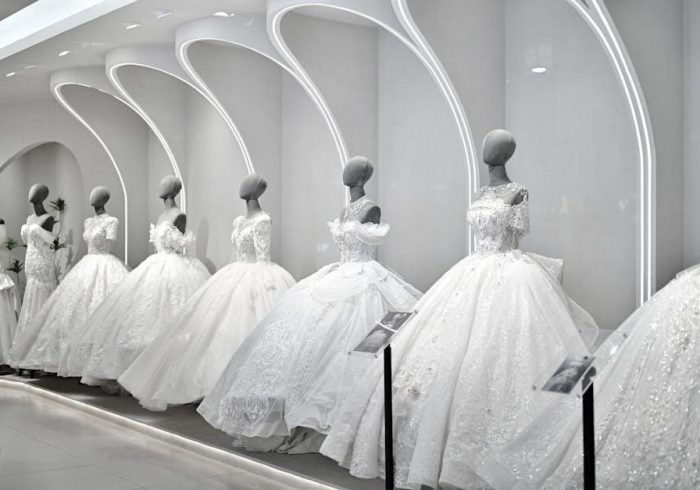The Effect, a gripping play by Lucy Prebble, explores the intersection of love, science, and ethics through a clinical drug trial. Two volunteers, Connie and Tristan, fall in love, blurring the lines between real emotions and medication-induced feelings. The play delves into the complexities of human connection and the ethical dilemmas of scientific experimentation, raising questions about the nature of love and mental health. First premiered at the National Theatre in 2012, it has since gained acclaim for its thought-provoking themes and emotional depth.
Background and Premise of the Play
The Effect, written by Lucy Prebble, is a thought-provoking play that delves into the complexities of human emotions, science, and ethics. The story centers around a clinical drug trial for an antidepressant, where two volunteers, Connie and Tristan, navigate their growing attraction. As their relationship deepens, the boundaries between genuine feelings and medication-induced effects blur, raising questions about love, mental health, and scientific responsibility. The play, first premiered at the National Theatre in 2012, combines elements of satire, tragedy, and thriller to create a gripping narrative that challenges audiences to reflect on the ethical dilemmas of medical experimentation and the unpredictability of the human heart.
Overview of the Plot and Characters
The Effect follows Connie and Tristan, two volunteers in a clinical trial for an experimental antidepressant. As they navigate the controlled environment, their initial attraction blossoms into a complex relationship, challenging the trial’s strict protocols. The doctors overseeing the trial, Dr. James and Dr. Lorna, grapple with the ethical implications of their bond, questioning whether their emotions are genuine or a side effect of the medication. As the story unfolds, the boundaries between reality and experimentation blur, leading to unexpected consequences. The play masterfully intertwines personal drama with scientific inquiry, exploring the tension between human connection and clinical control through its dynamic characters and morally ambiguous situations.

Key Themes in “The Effect”
The play explores the collision of love and science, ethical dilemmas in clinical trials, depression, mental health, and the blurring of reality and medication effects.
Exploration of Love and Science
The Effect masterfully intertwines the complexities of love and science, set against the backdrop of a clinical antidepressant trial. The play delves into how dopamine, a neurotransmitter linked to pleasure, influences human emotions, blurring the lines between genuine connection and chemical manipulation. Connie and Tristan’s blossoming relationship challenges the scientific framework of the trial, raising questions about the authenticity of their feelings. Prebble skillfully examines the tension between scientific objectivity and emotional subjectivity, highlighting the ethical dilemmas of experimenting with human emotions. The play ultimately leaves the audience pondering whether love can truly exist in a controlled, medicated environment, or if it is merely a side effect of the trial.
Ethical Dilemmas in Clinical Trials
The Effect sheds light on the ethical dilemmas inherent in clinical trials, particularly when human emotions are involved. The play raises questions about the manipulation of participants’ feelings, the role of informed consent, and the potential exploitation of vulnerable individuals. As Connie and Tristan’s relationship deepens, the trial’s objectivity is compromised, forcing the supervising doctors to confront their own biases and the moral implications of their work. The play highlights the tension between scientific progress and human welfare, challenging the audience to consider the ethical boundaries of medical experimentation. Prebble’s sharp dialogue and nuanced characters bring these complex issues to life, sparking a thought-provoking examination of responsibility in science.
The Impact of Depression and Mental Health
The Effect delves into the complexities of depression and mental health, exploring how they shape the characters’ lives and decisions. Connie, a young woman with a history of depression, volunteers for the trial, seeking relief. The play examines how medication affects her mental state and emotions, raising questions about the pharmaceutical industry’s role in treating mental health. Through her journey, Prebble highlights the stigma surrounding depression and the challenges of finding effective treatment. The interplay between her mental health and the trial’s outcomes underscores the fragility of the human mind and the ethical concerns of using drugs to alter emotions. The play humanizes these struggles, sparking empathy and reflection.

Characters and Their Development
Connie and Tristan, the protagonists, evolve dynamically as their emotions and identities intertwine with the clinical trial. Their journeys reveal raw vulnerability, growth, and the impact of external forces on their lives.
Connie: The Female Protagonist
Connie is a complex and deeply human character whose emotional journey drives the heart of the play; As a volunteer in the clinical trial, she struggles with her own demons, including depression and guilt, while navigating the blurred lines between her feelings for Tristan and the effects of the medication. Her vulnerability and introspection make her relatable, yet her strength in confronting the chaos around her underscores her resilience. Connie’s development throughout the play highlights her internal conflicts and the external pressures of the trial, ultimately raising questions about the authenticity of love and the limits of scientific control over the human mind.
Tristan: The Male Protagonist
Tristan, the male protagonist, is a charismatic and introspective character whose journey intertwines with Connie’s in the clinical drug trial. As a Canadian student volunteers for the trial, he brings a sense of charm and curiosity, but his growing feelings for Connie complicate the experiment’s objectives. Tristan’s character serves as a counterbalance to Connie’s emotional depth, often providing moments of levity and wit. His involvement in the trial raises questions about the authenticity of their connection and the ethical implications of the trial itself. Through Tristan’s perspective, the play explores themes of love, identity, and the blurred lines between reality and medication-induced emotions, adding layers to the narrative’s complexity.
The Role of Doctors and Researchers
The doctors and researchers in The Effect play a pivotal role in shaping the narrative, as they oversee the clinical drug trial that forms the play’s backbone. Their primary goal is to assess the efficacy of a new antidepressant, but the emergence of Connie and Tristan’s relationship complicates their objective. The medical team grapples with ethical dilemmas, questioning whether the emotions experienced by the participants are genuine or merely a side effect of the medication. Their decisions and biases significantly influence the trial’s outcome, adding layers of tension and moral complexity to the story. The interplay between scientific rigor and human emotion underscores the challenges of medical ethics in their roles.
Scientific and Medical Elements
The Effect delves into the scientific aspects of clinical drug trials, focusing on antidepressants and their impact on dopamine levels and psychological effects, raising ethical questions about medical experimentation.
The Clinical Drug Trial Setting
The Effect is set in a clinical drug trial for an antidepressant, where volunteers Connie and Tristan participate in a controlled medical environment. The trial, monitored by doctors, tests the drug’s efficacy and side effects, particularly its impact on dopamine levels and emotional responses. As Connie and Tristan experience euphoric feelings, the lines between genuine emotions and medication-induced effects blur, raising ethical concerns about the trial’s validity. The clinical setting serves as a crucible, exploring the tension between scientific objectivity and human vulnerability. This backdrop underscores the play’s themes of love, mental health, and the moral ambiguities of medical experimentation.
The Role of Antidepressants and Dopamine
Antidepressants play a central role in The Effect, as the clinical trial tests a powerful new drug designed to elevate dopamine levels in the brain. Dopamine, often linked to pleasure and emotional responses, becomes a focal point in the story. The drug’s ability to mimic dopamine effects blurs the distinction between genuine emotional connections and chemically induced feelings; This raises questions about the nature of love and whether it can be scientifically manipulated. The interplay between antidepressants and dopamine highlights the ethical dilemmas of medical experimentation, as the characters struggle to distinguish between their authentic emotions and the drug’s influence. This scientific backdrop underscores the play’s exploration of mental health and emotional complexity.
The Blurred Lines Between Reality and Medication
In The Effect, the clinical trial setting creates a tension between reality and medication, as the characters’ emotions become increasingly entangled with the drug’s influence. The antidepressant’s ability to manipulate dopamine levels raises questions about the authenticity of Connie and Tristan’s feelings. As their relationship deepens, it becomes unclear whether their love is a genuine emotional connection or a side effect of the medication. This blurring of lines challenges the characters—and the audience—to distinguish between real emotions and chemically induced responses. The play skillfully explores how medication can alter perceptions of reality, leaving both the characters and viewers questioning what is truly real.

Performances and Reception
The Effect premiered at the National Theatre in 2012, receiving critical acclaim for its emotional depth and thought-provoking themes. Notable revivals, including a 2023 production directed by Jamie Lloyd, further solidified its reputation as a gripping exploration of love, science, and ethics, captivating audiences with its intimate and thrilling storytelling.
Original Premiere at the National Theatre
The Effect premiered at the Royal National Theatre’s Cottesloe Theatre in London in November 2012. Directed by Rupert Goold, the production starred Billie Piper as Connie and Jonjo O’Neill as Tristan. The play was praised for its bold exploration of love, science, and ethics, with critics noting its emotional depth and intellectual rigor. The premiere marked a significant moment in Lucy Prebble’s career, solidifying her reputation as a thought-provoking playwright. The production’s success set the stage for future revivals and adaptations, cementing The Effect as a modern theatrical masterpiece that continues to resonate with audiences today.
Notable Revivals and Productions
The Effect has seen several notable revivals since its 2012 premiere. In 2023, Jamie Lloyd directed a bold new production at the National Theatre, featuring Paapa Essiedu and Taylor Russell as Connie and Tristan. This revival was praised for its intimate and electrifying performances, exploring the play’s themes with fresh intensity. Additionally, a Los Angeles production by Sixty-Six Productions received acclaim, with standout performances from Paul Rush and Jackie Jandrell. These revivals highlight the play’s enduring relevance, as it continues to captivate audiences with its exploration of love, ethics, and mental health, proving its adaptability and universal appeal across different stages and interpretations.
Critical Acclaim and Audience Response
The Effect has garnered widespread critical acclaim for its nuanced exploration of love, ethics, and mental health. Audiences and critics alike have praised the play’s ability to balance humor with emotional depth, creating a riveting and thought-provoking experience. The 2023 National Theatre revival, directed by Jamie Lloyd, was particularly celebrated for its stellar cast, including Paapa Essiedu and Taylor Russell, whose performances brought depth and complexity to the characters. The play’s intimate and electrifying nature has kept audiences on the edge of their seats, sparking conversations about the intersection of science and human emotion. Its universal themes and sharp dialogue continue to resonate, solidifying its place as a modern theatrical masterpiece.

Lucy Prebble’s Writing Style
Lucy Prebble’s writing in The Effect masterfully blends satire, tragedy, and thriller elements, creating a unique narrative voice that balances humor with emotional depth and explores taboo topics.
Use of Humor and Emotional Depth
Lucy Prebble skillfully infuses The Effect with humor, creating a balance between light-hearted moments and profound emotional exploration. This duality engages audiences, making the play both entertaining and thought-provoking. The characters’ witty dialogue and relatable struggles add depth, while the underlying themes of love, ethics, and mental health are presented with sensitivity. Prebble’s ability to blend comedy with poignant storytelling highlights her mastery of emotional nuance, ensuring that the play resonates on multiple levels. This approach not only enhances the narrative but also fosters a connection between the audience and the characters.
Interplay of Satire, Tragedy, and Thriller Elements
Lucy Prebble masterfully blends satire, tragedy, and thriller elements in The Effect, creating a dynamic narrative that captivates and provokes. Satire is evident in the play’s critique of the pharmaceutical industry and clinical trials, highlighting ethical ambiguities. Tragedy emerges through the characters’ emotional struggles and the consequences of their choices. The thriller aspect is fueled by the unpredictability of the drug trial and the blurred lines between reality and medication-induced emotions. This interplay keeps audiences engaged, offering both intellectual stimulation and emotional resonance. Prebble’s skillful balancing of these genres underscores the complexity of human experiences, making the play a compelling exploration of love, science, and morality.
Prebble’s Exploration of Taboo Topics
Lucy Prebble courageously tackles taboo subjects in The Effect, challenging societal norms and sparking crucial conversations. The play delves into the controversial aspects of clinical trials, questioning medical ethics and patient consent. It also confronts mental health stigma, portraying depression and anxiety with raw honesty. Prebble’s portrayal of working-class characters and diverse backgrounds adds depth, highlighting systemic inequalities. Her bold exploration of these topics creates a compelling narrative that resonates emotionally and intellectually, encouraging audiences to reflect on their own biases and assumptions. By addressing these sensitive issues, Prebble underscores the power of theatre to provoke thought and challenge societal norms.

Social and Cultural Impact
The Effect sparks discussions on medical ethics, mental health, and societal inequalities, influencing contemporary theatre and media with its bold portrayal of diverse, working-class characters and taboo themes.
Discussion of Medical Ethics and Consent
The Effect raises profound questions about medical ethics and consent, particularly in clinical drug trials. The play highlights the moral dilemmas faced by doctors and researchers when human emotions interfere with scientific objectives. Lucy Prebble examines the tension between informed consent and the unpredictable nature of human behavior, challenging the audience to consider the ethical implications of medical experimentation. The characters’ experiences underscore the potential for manipulation and bias in clinical settings, provoking a deeper reflection on the limits of medical intervention and the responsibility of those in charge. This thought-provoking exploration encourages viewers to question the balance between scientific progress and human autonomy.
Portrayal of Working-Class and Diverse Characters
The Effect showcases a diverse cast of characters, including working-class individuals, highlighting their unique experiences and perspectives. Connie, a working-class Londoner, and Tristan, a Canadian student, embody the play’s commitment to representation. Their differing backgrounds add depth to the narrative, allowing the audience to connect with a broader spectrum of societal voices. Prebble’s portrayal of these characters emphasizes their authenticity, challenging stereotypes and celebrating individuality. The play’s focus on diverse characters underscores its relevance to contemporary societal issues, making it a powerful exploration of human complexity and universal themes. This inclusive approach enhances the emotional resonance and intellectual engagement of the story.
Influence on Contemporary Theatre and Media
The Effect has left a significant mark on contemporary theatre and media, inspiring new approaches to storytelling and thematic exploration. Its blend of satire, tragedy, and thriller elements has influenced playwrights and creators to experiment with genre fusion. The play’s success has also sparked discussions about the portrayal of complex ethical dilemmas in media, encouraging deeper explorations of human emotions and scientific ethics. By tackling taboo topics with humor and emotional depth, The Effect has set a new standard for thought-provoking theatre, resonating with audiences and inspiring future productions. Its influence continues to grow, shaping both stage and screen narratives.
Adaptations and Interpretations
The Effect has been adapted into streaming performances, with its 2023 National Theatre revival available online. Director Jamie Lloyd’s production highlights the play’s cultural significance across regions.
Stage Productions and Directorial Approaches
The Effect has seen notable stage productions, with its 2012 premiere at the National Theatre in London, directed by Rupert Goold, starring Billie Piper and Jonjo O’Neill. The 2023 revival, directed by Jamie Lloyd, featured Paapa Essiedu and Taylor Russell, offering a fresh perspective on the play’s themes. In Los Angeles, Sixty-Six Productions presented a staging directed by Alison Ruth, highlighting the play’s universal appeal. Each production has brought unique directorial interpretations, emphasizing the interplay of science, love, and ethics. These stagings have been praised for their bold approaches, showcasing the play’s versatility and emotional depth, resonating with audiences worldwide.
Streaming and Digital Performances
The Effect has embraced digital platforms to reach global audiences. The National Theatre’s streaming service has made the play accessible online, offering viewers the chance to experience Lucy Prebble’s profound exploration of love and ethics. The 2023 revival, directed by Jamie Lloyd, was also streamed, allowing international audiences to witness Paapa Essiedu and Taylor Russell’s compelling performances; This digital availability has not only expanded the play’s reach but also ensured its continued relevance in contemporary theatre. By bridging the gap between stage and screen, The Effect remains a testament to the power of storytelling in the modern era, connecting with audiences beyond traditional theatre settings.
Cultural Significance in Different Regions
The Effect has resonated differently across various regions, sparking diverse conversations about its themes. In the UK, its National Theatre premiere highlighted ethical concerns in medical research, aligning with British debates on scientific accountability. In the US, productions have focused on the personal and emotional aspects, appealing to American audiences’ appreciation for intimate storytelling. Internationally, the play’s exploration of love and mental health has transcended cultural boundaries, making it a universally relatable work. Its ability to adapt to different cultural contexts while maintaining its core message has solidified its global impact, ensuring its relevance in contemporary theatre worldwide.
The Effect by Lucy Prebble leaves a lasting legacy in modern theatre, blending science, ethics, and human emotion. Its themes remain poignantly relevant, ensuring its continued resonance and future adaptations.
Legacy of “The Effect” in Modern Theatre
The Effect has left an indelible mark on contemporary theatre, praised for its bold exploration of love, science, and ethics. Its nuanced portrayal of mental health and clinical trials has sparked significant discussions, cementing its relevance. The play’s ability to blend emotional depth with satirical undertones has influenced many modern productions, encouraging playwrights to tackle taboo topics. With its continued revivals and adaptations, The Effect remains a testament to Lucy Prebble’s innovative storytelling, challenging audiences to reflect on the interplay between human emotion and scientific intervention. Its enduring appeal ensures its legacy as a pivotal work in 21st-century theatre.
Continued Relevance of Its Themes
The Effect remains strikingly relevant today, as its themes of love, mental health, and medical ethics resonate deeply with contemporary audiences. The play’s exploration of antidepressant trials and the blurred lines between reality and medication continues to spark crucial conversations about the pharmaceutical industry and patient consent. Its portrayal of working-class and diverse characters adds layers of social commentary, making it a powerful tool for discussing inequality. As mental health awareness grows, the play’s intimate and emotional storytelling ensures its themes stay timely and thought-provoking, offering a mirror to society’s ongoing struggles with science, ethics, and the human condition.
Future Prospects for the Play
The Effect continues to hold promise for future adaptations and interpretations, with its universal themes appealing to diverse audiences. Upcoming productions, including a potential U.S. premiere, are anticipated to introduce the play to new regions, further expanding its cultural impact. Collaborations with innovative directors and actors could bring fresh perspectives to the story, while streaming platforms may offer global accessibility. Additionally, the play’s exploration of mental health and ethics makes it a valuable resource for educational and discussions, ensuring its relevance for years to come. Its ability to blend science, romance, and moral dilemmas positions it as a timeless work in contemporary theatre.



